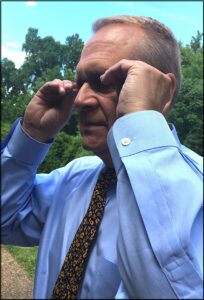I was born at the height of the baby boom in the house my parents built in a small agricultural town in the Rio Grande Valley of Texas, a town that remains small to this day. Seeking more professional opportunities, my parents moved the family to the growing port city of Houston, which was at the time less than one-quarter of its present size. I graduated from high school out of a western Houston school district and then obtained degrees in the geosciences and engineering from state universities.
After college, I worked as an engineer for a natural gas development and transportation company, but eventually found myself attracted to and doing project work for a large international bank. I followed up with the same sort of work on overseas projects, but for the U.S. Government, which I continued until my retirement.
At retirement, I decided I had enough of traveling. I wished for a quieter, less hectic existence. My professional career had taken me often to such places as Algeria, Chad, Colombia, Venezuela, Russia, Papua New Guinea, and Peru: this, a far from exhaustive list. I spent far too many hours in airplanes, in airport lounges, in customs and immigration queues, and going to and from airports. Contemplating the prospect of post-retirement consultancy work with an equivalent travel schedule just made me sad.
I had been prolific in the writing of complex analyses and findings, but these efforts were essentially dated (and outdated) dust, dead and buried, never to see the light of day, not even obtainable at least without the presumption of heavy redaction. Looking back, I recognized my writing had been read out of professional necessity only and likely never to be read again.
And I thought they were journeyman efforts: good writing not only crafted for technical correctness, but specifically addressed to and for the utility of a non-technical audience, most often political appointees. I had more than once received the compliment, “You don’t write like an engineer.” At least, I always assumed it was a compliment.
Decrying the cliché that I write my memoirs, additional writing that no one would want to read, I turned to storytelling. These books are the result. Again, they are pure fiction intended to entertain and no more.
I think that suffices.
